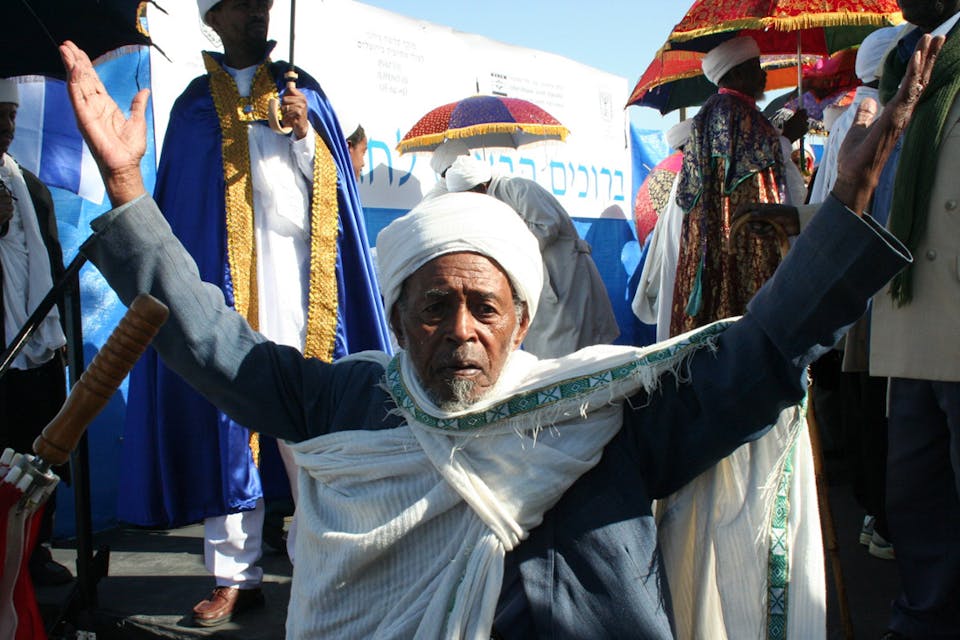
November 11, 2015
Why Is the Beta Israel Term for God Different from the Hebrew Terms for God?
The answer might help uncover the origins of Ethiopian Jewry.
Yoske runs a small and popular hummus place in our town. He’s a Ḥabad ḥasid and keeps a shelf near the door with religious literature for customers to browse in while waiting. A few days ago, I was surprised to come across there, among the tracts of advice and inspirational treatises, a slim paperbound volume identified by its cover as Volume III, No. 1 (1980-81), of the Journal of the American Society for Jewish Music. “Yoske,” I asked, showing it to him, “what is this doing here?” Yoske had no idea. “Someone must have donated it,” he said. “But if you found it, God wanted you to have it, so take it.” His term for God was the traditional ha-kadosh barukh hu, “the Holy One Blessed Be He.”
I took the Journal of the American Society for Jewish Music home with my hummus and soon was reading an article on “Seged: A Falasha Pilgrimage Festival.” Its author, Kate Kaufman Shelemay, later published a book titled Music, Ritual, and Falasha History. Yoske would have taken all this as a confirmation of his belief in Providence, because the Seged festival, an annual celebration of Ethiopian Jews—who are rarely called Falashas any longer and are often referred to as Beta Israel—occurs this year on November 11, just in time for today’s language column.
These days, Seged is observed almost exclusively in Israel, to which nearly all Ethiopian Jews have immigrated. Back in the early 1980s, however, it was restricted to the highlands of northern Ethiopia. As described by Shelemay: